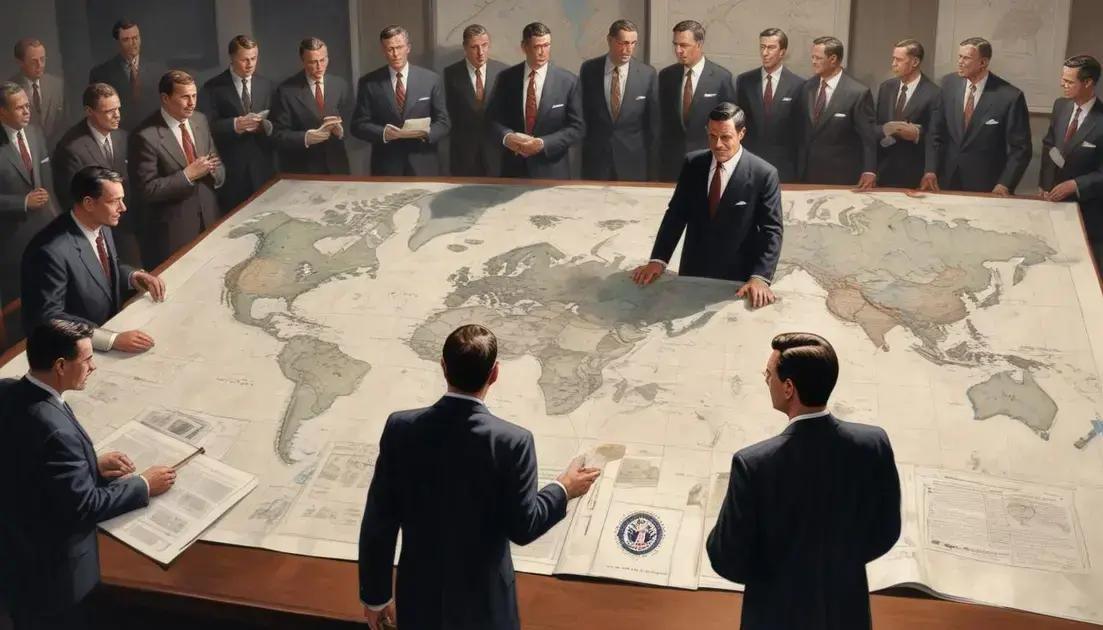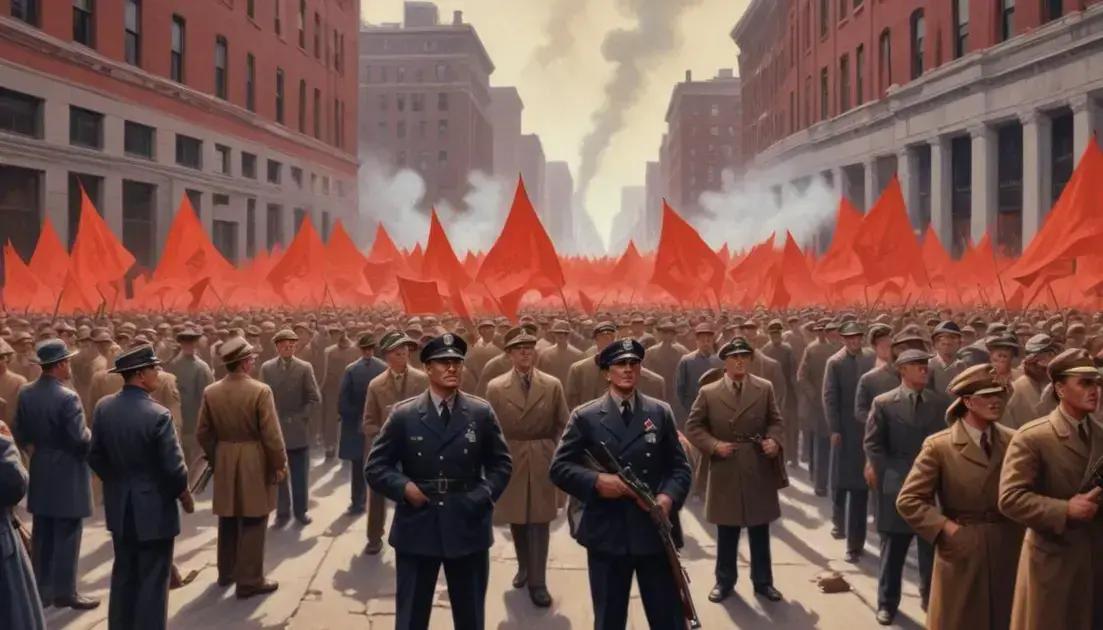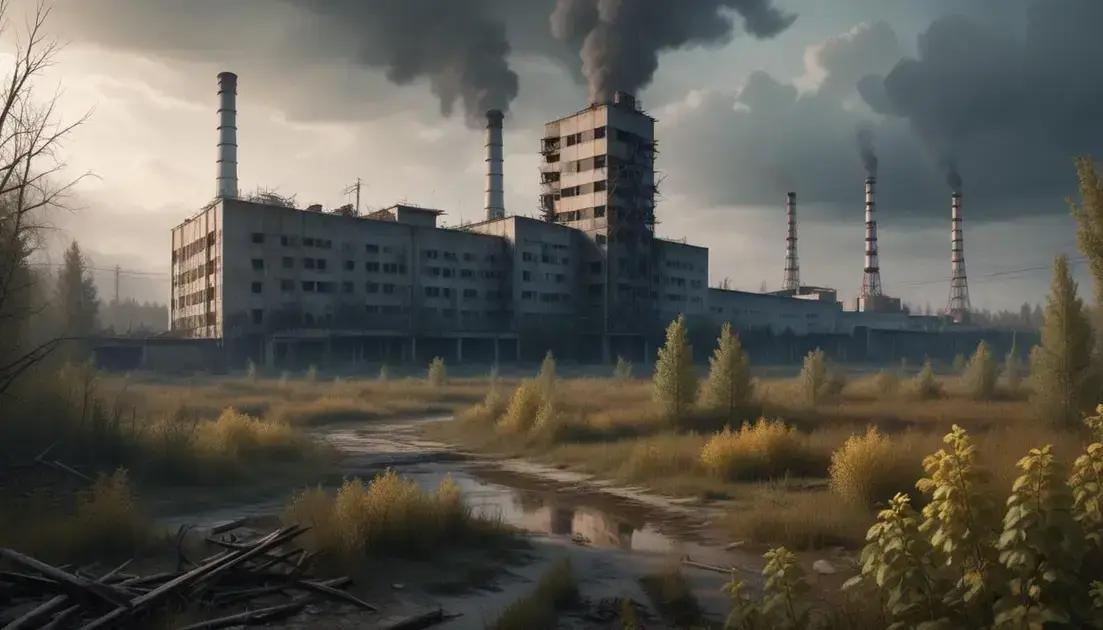
The rise of the CIA and the invisible empire
The CIA has significantly influenced global politics through its covert operations and intelligence gathering. Controversies surround its methods, including the use of torture and involvement in foreign governments’ affairs. The agency adapts to new challenges, focusing on technology and cybersecurity, while advocating for international collaborations to combat threats. As intelligence agencies evolve, they face the ongoing challenge of balancing security, ethics, and public trust.
Have you ever wondered about the true power of the CIA? This agency, birthed in the shadow of war, has been a cornerstone of covert operations and diplomacy for decades. Let’s dive into its hidden history.
The Origins of the CIA
The origins of the CIA are quite fascinating. It all began after World War II. The U.S. realized that it needed a strong intelligence agency. In 1947, they created the CIA to gather and analyze information. This was a big step toward protecting national security.
Why Was the CIA Created?
Before the CIA, there were many smaller agencies. These just weren’t enough to handle the challenges of the Cold War. The CIA was formed to combine these efforts into one powerful organization. It aimed at keeping America safe and informed.
Early Days of the CIA
In its early days, the CIA focused on Europe and the Soviet Union. They performed secret missions to gather intelligence. These actions helped shape U.S. foreign policy.
Key Events in the CIA’s History
Several key events marked the CIA’s early years. One major event was the Korean War. The CIA played a role in providing intelligence to help U.S. forces. Another was the Cuban Revolution, where the CIA tried to influence the outcome of events.
Over the years, the CIA expanded its reach. It began to engage in covert operations around the globe to protect U.S. interests. The agency’s influence grew, and it became a key player in the Cold War.
Key Operations and Secret Missions
The CIA has been involved in many key operations and secret missions. These actions often happen far from public view. They help shape the course of history in different ways.
Covert Operations
Covert operations are missions kept secret from the public. The CIA uses these to influence events in other countries. This can include surveillance, sabotage, and even supporting certain groups.
Examples of Major Missions
One notable mission was in Iran in 1953. The CIA helped overthrow the democratically elected Prime Minister. This action led to a long-term impact on U.S.-Iran relations.
Another important mission was the Bay of Pigs invasion in 1961. The CIA attempted to invade Cuba to overthrow Fidel Castro. Although this mission failed, it showed the CIA’s willingness to act.
Counterterrorism Efforts
In recent years, the CIA focused heavily on counterterrorism. After 9/11, the agency ramped up efforts to prevent future terrorist attacks. This includes gathering intelligence and cooperating with other countries.
Impact on Global Politics
These operations often affect international relations. They can lead to tensions or sometimes improve ties between nations. For instance, the CIA’s actions can sway public opinion in foreign countries.
The CIA’s secret missions illustrate the complex world of intelligence work. Each operation carries risks and can lead to significant consequences.
The Impact of the CIA on Global Politics
The CIA has had a significant impact on global politics over the years. Its actions shape diplomatic relations and influence major decisions worldwide.
Shaping Foreign Policy
The CIA plays a vital role in shaping U.S. foreign policy. By providing key intelligence, it helps leaders make informed decisions. This can determine how America interacts with other countries.
Involvement in Conflicts
The CIA’s involvement in conflicts has been notable. For instance, in the Cold War, it supported anti-communist movements. This action often aimed to counter Soviet influence in various regions.
Covert Operations and Regime Changes
Many covert operations led to regime changes in different countries. The CIA’s involvement in Iran and Chile are prime examples. These actions can have long-term effects on a nation’s stability and relations with the U.S.
Response to Terrorism
After 9/11, the CIA focused heavily on counterterrorism. This shift has significantly influenced how the U.S. engages with nations tied to terrorist activities. Strategic partnerships emerged based on this new focus.
Influence on International Relations
The CIA’s impact extends to international relations. Countries often take the CIA’s actions into account when forming alliances or responding to U.S. policies. Understanding this dynamic is crucial for global diplomacy.
The CIA’s role in global politics highlights the complexities of intelligence work. Its influence often reaches far beyond what is publicly known.
Controversies Surrounding the Agency
The CIA has faced many controversies throughout its history. These issues often raise questions about ethics and accountability in intelligence work.
Criticism of Covert Operations
Many people criticize the CIA for its secret operations. Some feel these missions violate other countries’ sovereignty. When the CIA intervenes, it can lead to local unrest and long-term consequences.
Use of Torture
One of the biggest controversies involves the use of torture. After 9/11, the CIA used harsh interrogation techniques on suspects. These methods sparked a heated debate about human rights and legality.
Political Manipulation
The agency has also been accused of manipulating foreign governments. By supporting certain regimes or groups, the CIA meddles in other countries’ politics. This often leads to backlash against U.S. interests.
Accountability and Oversight
Questions about accountability are common. Critics argue that the CIA operates with little oversight. This lack of checks can lead to abuses of power and illegal activities.
The Need for Reform
Many call for reforms within the CIA. Advocates want stricter guidelines and clearer oversight. They believe these changes can help restore public trust.
While the CIA plays a vital role in national security, these controversies highlight the challenges it faces. The balance between security and ethics remains a complex issue.
Future of Intelligence Agencies
The future of intelligence agencies is evolving rapidly. New technologies are changing how these agencies operate. They must adapt to stay effective in a changing world.
Impact of Technology
Technology plays a huge role in intelligence work. Artificial intelligence and big data can help analyze information faster. These tools can provide insights that were once impossible to achieve.
Cybersecurity Challenges
As more data becomes digital, cybersecurity is critical. Intelligence agencies must protect sensitive information from cyberattacks. This challenge requires continuous updates to security measures.
Collaboration with Other Nations
Collaboration between nations is more important than ever. Intelligence agencies need to share information to combat global threats. Joint efforts can improve security and foster trust among countries.
Focus on Domestic Issues
In the coming years, intelligence agencies might focus more on domestic issues. Terrorism, espionage, and cyber threats are growing concerns within borders. Agencies will need to balance international and domestic responsibilities.
Ethical Considerations
As technology advances, ethical questions arise. Intelligence agencies must ensure they respect citizens’ rights. Balancing security and privacy will be a major focus in the future.
Ultimately, the future of intelligence agencies will depend on how they adapt to new challenges. Staying ahead will require innovation, cooperation, and a strong commitment to ethics.
Conclusion
In conclusion, the future of intelligence agencies hinges on their ability to adapt to new challenges. Embracing technology like artificial intelligence and big data will enhance their capabilities. As they navigate cybersecurity threats, they must always prioritize the safety of sensitive information.
Collaboration between nations will be crucial in handling global threats effectively. Intelligence agencies also need to focus on balancing domestic security issues while respecting citizens’ rights. Ultimately, the goal is to create a safer world while maintaining trust and ethical standards.


